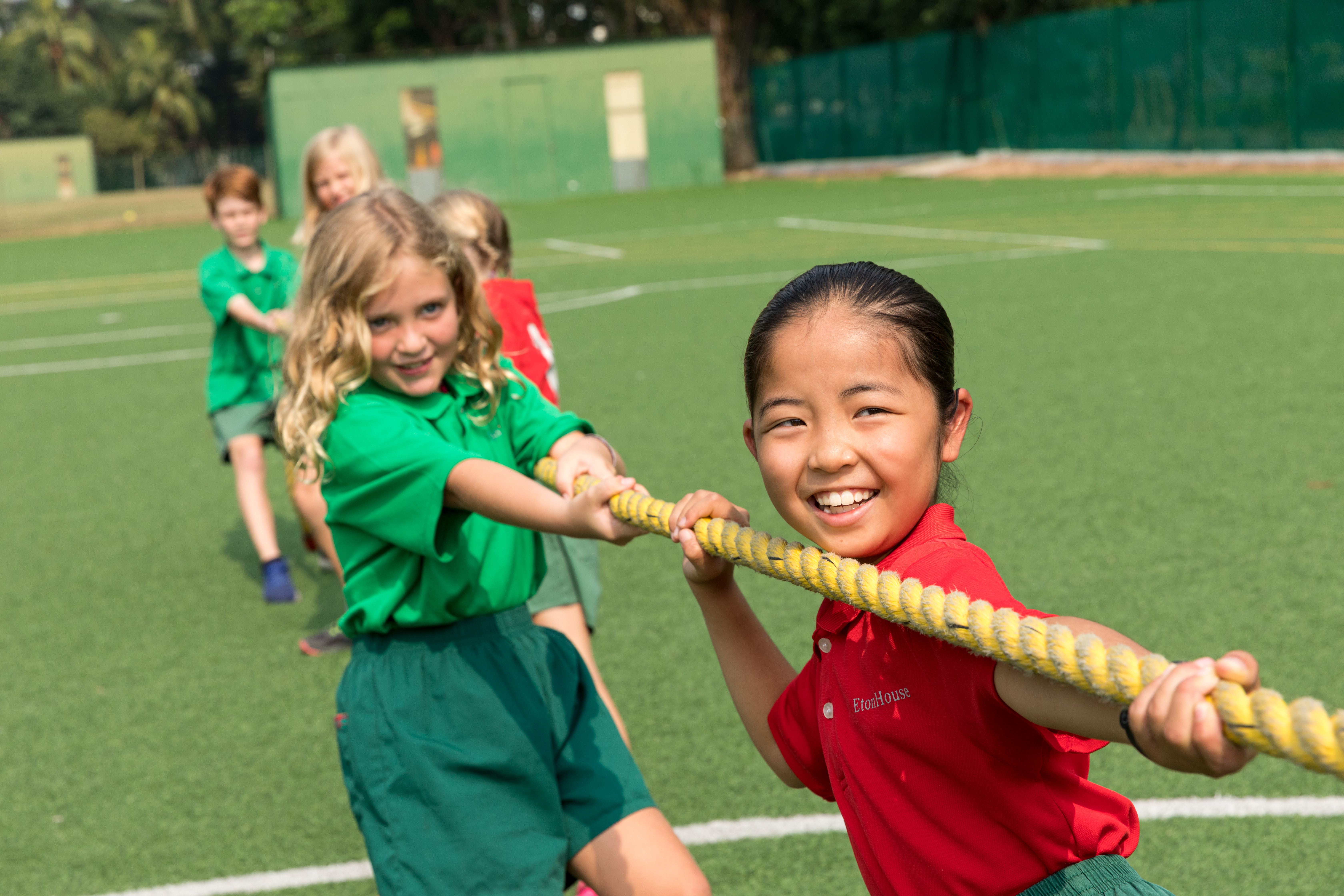-1.png)
EtonHouse Singapore
Resilience is being able to bounce back from stress, challenge or adversity. When children are resilient, they are braver, more curious and will be able to solve problems independently which allows them to achieve their goals as they grow.
We are fortunate to have Adrian Bennett, a Guinness World Record holder for the longest triathlon completed to share more on building resilience in our children. Achieving the world record of 7519.67 km of running, cycling, and swimming requires immense perseverance and grit. Besides training for a triathlon, Adrian also teaches Design & Technology at EtonHouse International School Orchard. In this article, Adrian will be sharing his triathlon background and tips on developing grit and resilience in our students in the classroom.
Q: Tell us about your journey and how you started getting into endurance sports?
 Adrian: I grew up in Kenya, as a child I was often running around without shoes, going on a safari with my father and leading an active lifestyle. My family is very adventurous, my uncles ran the Himalayas in 80 days and one climbed the highest peak in every state of America in 101 days. So I had good role models for endurance sports and constantly challenge myself to do more.
Adrian: I grew up in Kenya, as a child I was often running around without shoes, going on a safari with my father and leading an active lifestyle. My family is very adventurous, my uncles ran the Himalayas in 80 days and one climbed the highest peak in every state of America in 101 days. So I had good role models for endurance sports and constantly challenge myself to do more.
Q: What were some of the challenges that you faced as a triathlon athlete? How did you overcome these challenges and balance your training with a job and being a father?
Adrian: The original plan was to do the triathlon while travelling. Because of Covid, I found myself stuck in Singapore, my family had just arrived here three weeks before my race, and there was a lot to settle. What kept me going was knowing that this was the dream of my life, and I wasn’t going to let anything stop me. At the same time, I couldn’t let my family be affected, so even though I was exhausted after my training, I made sure I still spent time with my children.
Q: What is the difference between resilience and grit? How does this translate into a classroom context with your students? How can students develop resilience and grit?
Adrian: Resilience is the ability to bounce back from a challenging situation, it is a long word for children and it might be hard for them to understand it. Grit is when you are intrinsically motivated to achieve a goal and use your mental capacity to overcome the challenges.
I am pushing the idea of a strong physical body and mental strength at the moment. The focus is on preparing your body, being physically fit by engaging in physical or endurance activities and how they are equally important as studying hard and working towards other academic goals.
In the classroom, it is important to develop an open mindset with the students. I will let them know that it is okay to fail and feel upset over the situation. I will encourage them to keep an open mind, look into what went wrong and brainstorm how they can do better next time because every step forward is going to be greater.
Q: We want our children to develop resilience which will take them through the toughest moments of their lives, can resilience be nurtured?
Adrian: Everybody is different but there is an absolute certainty that resilience can be developed. This is especially true for children and young adults because they are constantly finding ways to push themselves. In the process, they are building on their grit and resilience by pushing the barrier bit by bit even though it is a tough journey.
It is also crucial to be a good role model for our children. For example, we know that participating in physical activities is important as it gives you an outlet to reduce stress. So how do we motivate our children to do sports if we do not show them it is an everyday activity? To be a role model for grit, we involve ourselves in sports and make it visible by going for a run even though it is challenging. They might not know it immediately, but your children will learn that you persevered. They will pick up running or get involved in sports because you showed them it is a common activity.
.jpg?width=412&name=Adrian_Quote%20(2).jpg)
Stay tuned for part 2 of the article where we invite Ng Yi Xian, our Executive Director, to share his views with Adrian on nurturing grit in our children.
Click play to view the full webinar recording
Join us in the next episode of the EtonHouse Parenting Webinar where we invite a principal and a parent to speak on respectful parenting techniques on the 7th of December.


